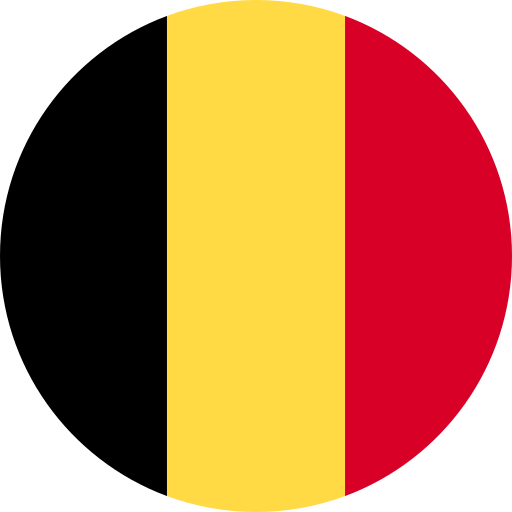Belgium is a unique blend of cultures and languages, making it a fascinating place for voiceover work. With two primary linguistic communities—French and Flemish—the choice between Belgian French and Flemish voiceover can significantly impact your project’s tone and audience connection. Each language carries its own nuances, accents, and cultural references that resonate differently with listeners.
Understanding the differences between these two dialects is crucial for anyone looking to create authentic content in Belgium. Whether you’re producing commercials, films, or educational materials, knowing when to use Belgian French or Flemish can elevate your message and ensure it reaches the right ears. Dive into this exploration of voiceover options to discover which style best suits your needs.
Key Takeaways
- Distinct Dialects: Belgian French and Flemish voiceovers feature unique pronunciations, vocabularies, and cultural references that cater to specific audiences in Belgium.
- Cultural Relevance: Understanding the cultural influences behind each dialect is essential for creating authentic content that resonates with local listeners.
- Impact on Media: The choice between Belgian French and Flemish voiceovers can significantly enhance audience engagement in films, television, commercials, and branding efforts.
- Target Audience Connection: Using the appropriate dialect ensures your message connects effectively with target demographics, fostering trust and relatability.
- Professional Voice Talent: Collaborating with skilled voice artists who specialize in either Belgian French or Flemish is crucial for authenticity and project effectiveness.
Overview of Belgian French and Flemish Voiceover
Belgium’s linguistic diversity significantly impacts voiceover options. Understanding the distinctions between Belgian French and Flemish voiceovers enhances project effectiveness and audience connection.
Definition of Belgian French Voiceover
Belgian French voiceover refers to voice work performed in the French dialect spoken in Belgium. This dialect exhibits unique pronunciation, vocabulary, and cultural references distinct from standard Parisian French. Voice artists specializing in this area bring regional nuances to their performances, ensuring authenticity that resonates with local audiences. Projects requiring a sophisticated tone or targeting Francophone communities benefit from utilizing skilled Belgian French voice talent.
Definition of Flemish Voiceover
Flemish voiceover encompasses voice work delivered in Dutch as spoken in Flanders, the northern region of Belgium. This variant includes specific phonetic characteristics and idiomatic expressions that differ from standard Dutch. Voice actors proficient in Flemish capture these subtleties, providing engaging content for various media like commercials or documentaries. Employing a talented Flemish voice over artist ensures your message is both relatable and appealing to the target demographic within Flanders.
Key Differences Between Belgian French and Flemish Voiceover
Understanding the key differences between Belgian French and Flemish voiceover enhances your project’s effectiveness. Each dialect brings unique qualities that can significantly influence audience engagement.
Language and Dialect Variations
Belgian French differs from standard Parisian French in pronunciation, vocabulary, and expressions. It incorporates regional nuances that connect more deeply with local audiences. For instance, certain words and phrases may only resonate within Belgium’s cultural context. Conversely, Flemish voiceovers showcase distinct phonetic traits found in the Dutch spoken in Flanders. This variation includes specific idiomatic expressions that can affect the tone of your content. When selecting a voice over talent, consider these linguistic subtleties to ensure authenticity.
Cultural Influences on Voiceover Styles
Cultural references play a crucial role in shaping voiceover styles for both Belgian French and Flemish projects. Belgian French often reflects influences from neighboring cultures, which adds layers of depth to character portrayals or narratives. This aspect is vital when targeting Francophone audiences who appreciate regional specificity. In contrast, Flemish voiceovers frequently highlight local traditions and humor relevant to Flanders’ demographic. Understanding these cultural nuances allows you to choose appropriate voice artists who embody the essence of their respective dialects while engaging listeners effectively.
Application in Media and Advertising
Understanding the application of Belgian French and Flemish voiceovers in media and advertising is crucial for enhancing audience engagement. The choice between these dialects can significantly impact how your message resonates with target demographics.
Role in Film and Television
Belgian French voiceovers bring a regional authenticity that enhances character development in films and television series. Employing local voice talent ensures that performances reflect cultural nuances, making stories relatable to Francophone audiences. Similarly, Flemish voiceovers play a vital role in creating an authentic viewing experience for Dutch-speaking viewers. Utilizing skilled Flemish voice artists allows productions to connect deeply with their audience through genuine expressions and accents, enriching narrative delivery.
Use in Commercials and Branding
In commercials, the choice of voiceover directly influences brand perception. Belgian French voice actors deliver messages with a sophistication that appeals to discerning consumers, often reflecting local culture and values. This approach fosters trust among audiences who recognize familiarity in the language used. On the other hand, Flemish voice over talent creates compelling advertisements by incorporating idiomatic expressions unique to Flanders, ensuring relatability and resonance with viewers. Choosing the right dialect for your branding efforts can enhance emotional connections with potential customers, ultimately driving engagement and loyalty.
Conclusion
Choosing between Belgian French and Flemish voiceover can make a significant difference in how your message is received. Each dialect brings its own cultural nuances and phonetic traits that resonate with local audiences. By understanding these differences, you ensure that your content not only sounds authentic but also connects emotionally with viewers.
Whether you’re working on commercials or films, selecting the right voice talent is crucial for effective audience engagement. Take the time to explore the unique qualities of both Belgian French and Flemish voiceovers to find the perfect fit for your project. Your choice will ultimately shape how your message is perceived and appreciated by your target demographic.
Frequently Asked Questions
What is the significance of Belgium’s cultural and linguistic diversity in voiceover work?
Belgium’s cultural and linguistic diversity plays a crucial role in voiceover work by influencing how projects are perceived. Understanding the nuances of both Belgian French and Flemish helps create authentic content that resonates with local audiences, enhancing engagement and effectiveness.
How do Belgian French and Flemish differ in voiceover?
Belgian French differs from standard Parisian French in pronunciation, vocabulary, and expressions. Similarly, Flemish features distinct phonetic traits and idiomatic expressions compared to standard Dutch. These differences affect audience connection and overall project tone.
Why is it important to choose the right dialect for voiceovers?
Choosing the right dialect ensures that content feels relatable to the target audience. Belgian French brings sophistication for Francophone communities, while Flemish incorporates local humor, making messages more effective and engaging.
How does cultural influence affect voiceover styles in Belgium?
Cultural influences shape voiceover styles significantly. Belgian French often reflects neighboring cultures, adding depth to performances. In contrast, Flemish emphasizes local traditions, ensuring that characters resonate well with Dutch-speaking viewers.
What applications do Belgian French and Flemish voiceovers have in media?
Both dialects are essential in media such as commercials, films, and educational materials. Belgian French enhances character development for Francophone audiences while Flemish creates authentic experiences for Dutch-speaking viewers through relatable language use.
How can I determine which type of voiceover I need for my project?
To determine the best type of voiceover for your project, consider your target demographic’s language preferences and cultural context. Evaluating whether you require sophistication or relatability will guide your choice between Belgian French or Flemish talent.







